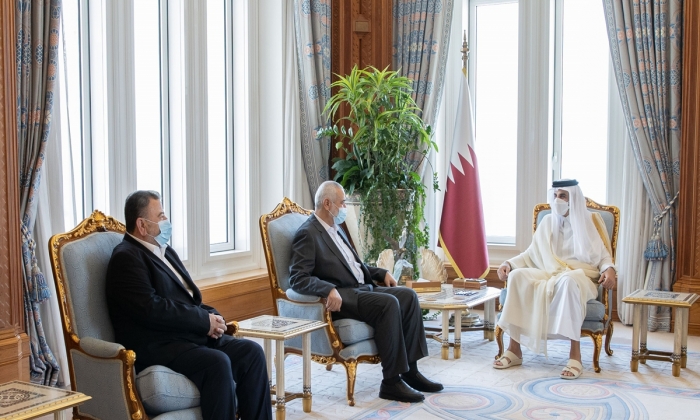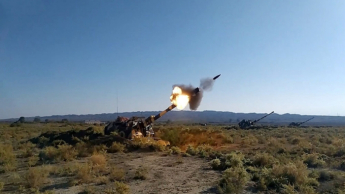Gazans slowly make efforts for regional reconstruction

As thousands of Gazans slowly tried to piece back together their lives, top UN staff visited the territory after an Egyptian-brokered cease-fire Friday halted 11 days of mutual bombardment, where they warned of the deep psychological trauma of the violence.
As thousands of Gazans slowly tried to piece back together their lives, top UN staff visited the territory after an Egyptian-brokered cease-fire Friday halted 11 days of mutual bombardment, where they warned of the deep psychological trauma of the violence, Baku Tribune reports citing Globaltimes.cn.
On Sunday, in a badly-damaged district of Gaza city, volunteers swept up clouds of dust at the feet of collapsed buildings, while others shoveled debris onto the back of a donkey-drawn cart.
Israeli air strikes on the Gaza Strip since May 10 have killed more than 200 Palestinians, rendered thousands homeless and laid waste to buildings and key infrastructure across the blockaded territory.
It was the latest such bombardment to hit the crowded coastal strip of some two million people, after three previous wars with Israel since 2008.
Philippe Lazzarini, head of the UN Palestinian refugee agency UNRWA, said the reconstruction needed to go hand in hand with efforts to create "a different political environment. We need to have a genuine focus on human development," on proper access to education, jobs and livelihoods, he said.
"But this needs to be accompanied by a genuine political process."
Speaking earlier to a group of journalists, he said "the layers of hardship in Gaza keep getting thicker," because the root causes of the conflict have not been addressed.
Israeli strikes on Gaza killed 248 Palestinians, including 66 children, and have wounded over 1,900 people, the Gaza health ministry says.
Rockets from Gaza claimed 12 lives in Israel, including one child and an Arab-Israeli teenager, an Israeli soldier, one Indian, and two Thai nationals, medics say. Some 357 people in Israel have been wounded.
Comparing the last war in 2014, "where people were able to get out," Lynn Hastings, of the UN aid agency OCHA, said that the intense bombing had devastated people's mental health. "The comments that I have heard are not 'I need access to water' - even though there are 800,000 people who don't have access to clean water right now - but about the impacts on their lives overall and how they are ever going to recover from this," she said.
The Rocket and Artillery formations of the Azerbaijan Army conduct live-fire exercises in accordance with the combat training plan for 2021, the Ministry of Defense of Azerbaijan told Baku Tribune.
LAST NEWS






.jpg&h=67&w=67&zc=1&q=100)













